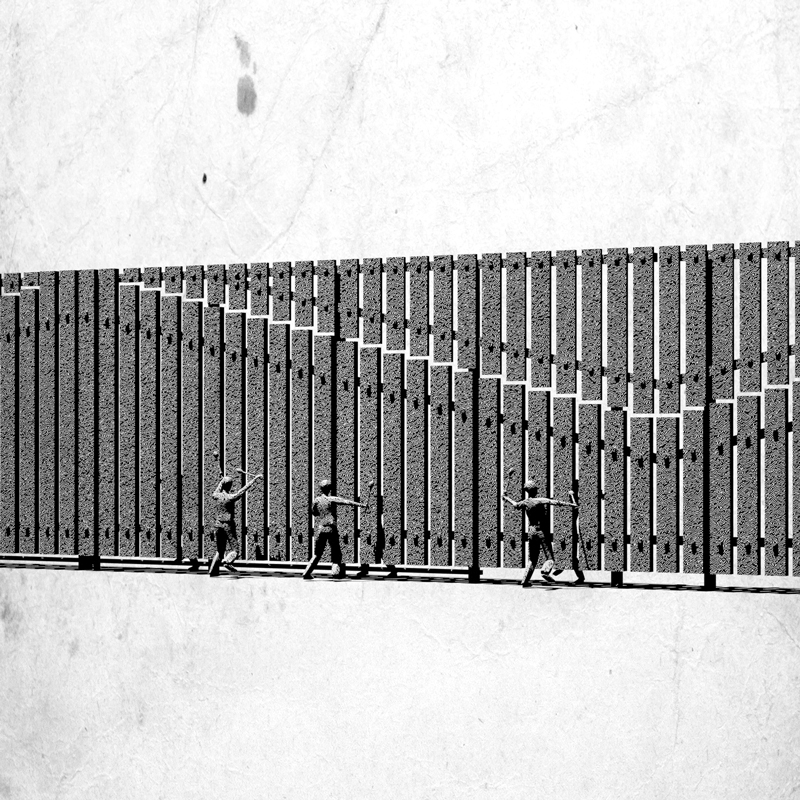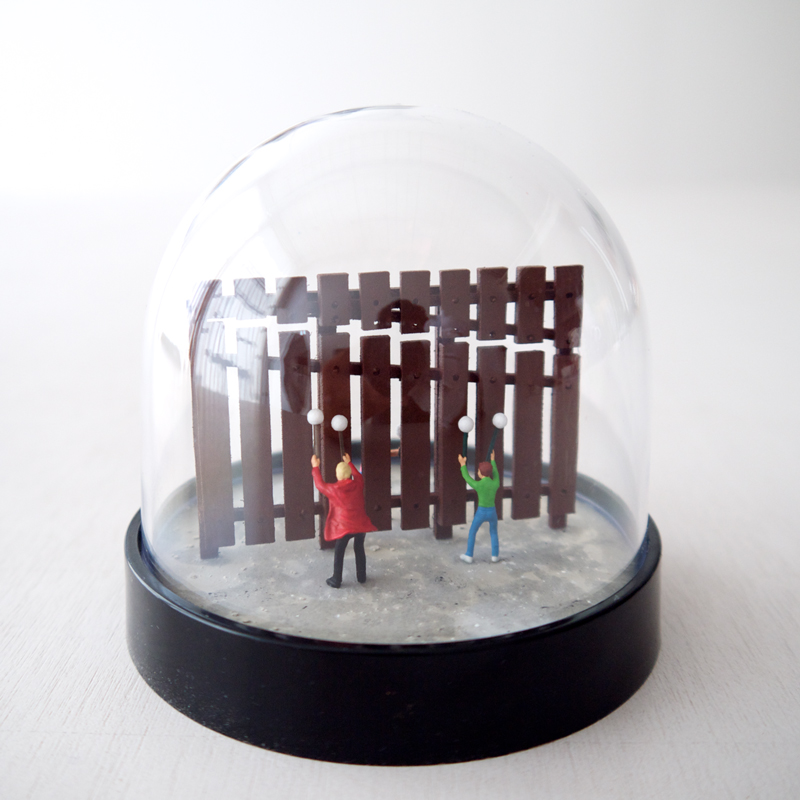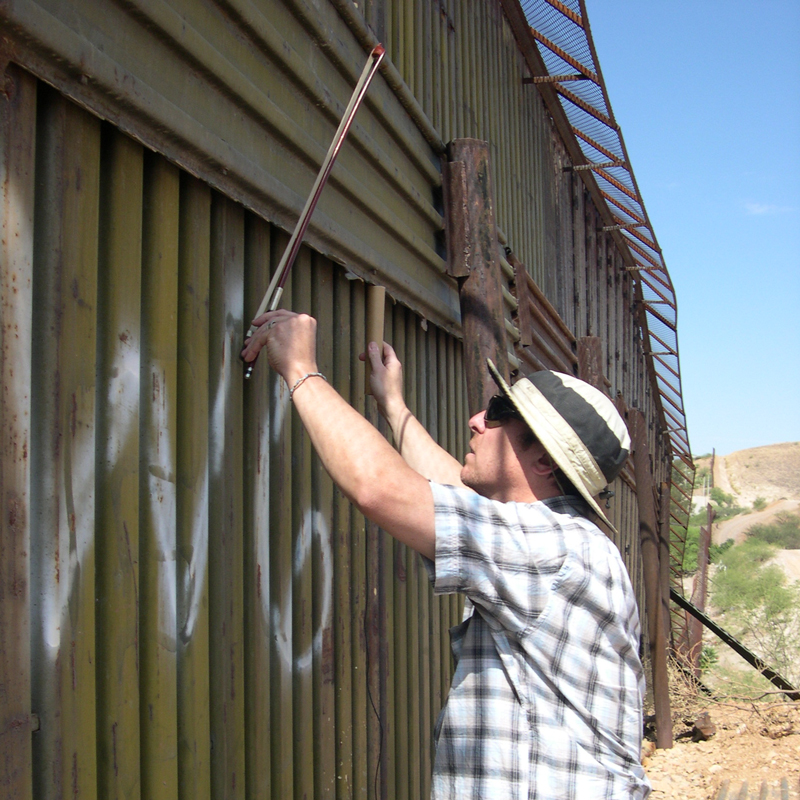In an episode of the animated series, “The Simpsons”, the residents of Springfield construct a wall around their town so that residents of the neighboring town do not come in and take jobs away from them. In the episode, Homer Simpson attempts to find commonalities with his daughter by telling her, Lisa, “I share your xylophobia”, to which Lisa replies: “No, Dad, you mean xenophobia. Xylophobia would be the fear of xylophones.” Homer retorts: “I am afraid of xylophones—it’s the music you hear when skeletons are dancing!”
Homer’s fear of his neighbors, is just as unreasonable as his fear of xylophones. Rather than constructing walls along the border as a manifestation of the irrational fear of that which is foreign, it would be far more reasonable to construct xylophones along the border.
In fact, what if the wall was instead the world’s largest xylophone, played by thousands of people across the two countries? A Xylophone Wall would allow for multi-person/bi-national informal and formal performances on the border, bringing people from both sides together to create a single, sonic experience that conceptually transforms the space of the existing wall into a performance.
Musician, Glenn Weyant, believes that instrument has already been constructed, and by accepting the challenge of learning to play the wall, he is deconstructing its meaning and transforming it into “an instrument so that people on both sides can have open dialogue and communication.”[1] Instead of being an implement of division, the wall was transformed into an instrument of creation with the power to unite.[2]
He plays the wall as a percussive instrument using drumsticks, mallets, violin bows and sticks found on the ground—implements of mass percussion, as he describes them, referencing the “weapons of mass destruction”, that were partly responsible for the existence of the wall.[3] He also sees it as a string instrument, rubbing cello bows across the rusty steel to explore a new frontier of sounds as part of his Sonic Anta (sonic pertaining to sound and anta—a Sanskrit word meaning border or end of known territory.
His performances have been monitored and inspected by armed agents of The U.S. Border Patrol, The Department of Homeland Security and The City of Nogales Police Department. Border Patrol agents have also been passive and active participants in his performances—either by being recorded by him when they approach to question his actions, or being invited by Glenn to pound on the fence with him to explore, what he describes as, an ever-changing borderland sound ecology.
[1] http://www.latimes.com/local/la-na-ff-c1-border-music-20140130-dto,0,3650473.htmlstory#ixzz2x731TcxI
[3] the alleged existence of weapons of mass destruction in Iraq became the primary justification for the 2003 invasion of Iraq and the eventual construction of the wall to protect the southern border against the threat of terrorism.




